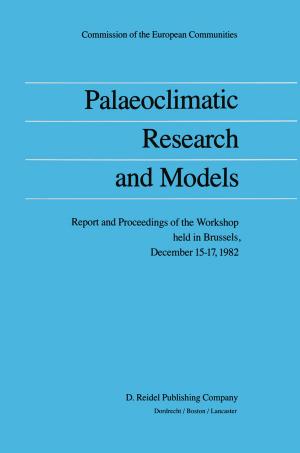Epigenetics Territory and Cancer
Nonfiction, Science & Nature, Science, Other Sciences, Molecular Biology, Health & Well Being, Medical, Specialties, Oncology| Author: | ISBN: | 9789401796392 | |
| Publisher: | Springer Netherlands | Publication: | March 18, 2015 |
| Imprint: | Springer | Language: | English |
| Author: | |
| ISBN: | 9789401796392 |
| Publisher: | Springer Netherlands |
| Publication: | March 18, 2015 |
| Imprint: | Springer |
| Language: | English |
This book explores epigenetic strategies, bridging fundamental cancer epigenetics, different paradigms in tumor genetics and translational understanding for both the clinic and improved lifestyles. The work provides target-based insights for treating different types of cancers and presents research on evolutionary epigenetics, introducing ‘Medical Epi- Anthropology’ and ‘Cancer Epi-Anthropology’. Translating multi-disciplinary research into therapeutic design is at the core of this book. Readers may explore how cancer management involves unmasking the involved networks and the interactive status of different genes to achieve the appropriate methylome based therapy. Early chapters explore fundamental aspects and brain tumours, whilst later chapters investigate breast cancer and various other cancers, and the final chapter presents an evolutionary insight in cancer epigenetics, considering that the epigene is beyond DNA methylation, RNA interference and histone modification in cancer development. This book will be of interest to researchers in different medical and scientific fields, including clinical management (diagnosis, prognosis, prediction, prevention, and guidelines), genetic education, nutrition and nutrigenomics, industrial chemistry, and drug innovation. Because of the unique bridging between science and medicine this book will also be useful as an educational and translational research package.
This book explores epigenetic strategies, bridging fundamental cancer epigenetics, different paradigms in tumor genetics and translational understanding for both the clinic and improved lifestyles. The work provides target-based insights for treating different types of cancers and presents research on evolutionary epigenetics, introducing ‘Medical Epi- Anthropology’ and ‘Cancer Epi-Anthropology’. Translating multi-disciplinary research into therapeutic design is at the core of this book. Readers may explore how cancer management involves unmasking the involved networks and the interactive status of different genes to achieve the appropriate methylome based therapy. Early chapters explore fundamental aspects and brain tumours, whilst later chapters investigate breast cancer and various other cancers, and the final chapter presents an evolutionary insight in cancer epigenetics, considering that the epigene is beyond DNA methylation, RNA interference and histone modification in cancer development. This book will be of interest to researchers in different medical and scientific fields, including clinical management (diagnosis, prognosis, prediction, prevention, and guidelines), genetic education, nutrition and nutrigenomics, industrial chemistry, and drug innovation. Because of the unique bridging between science and medicine this book will also be useful as an educational and translational research package.















